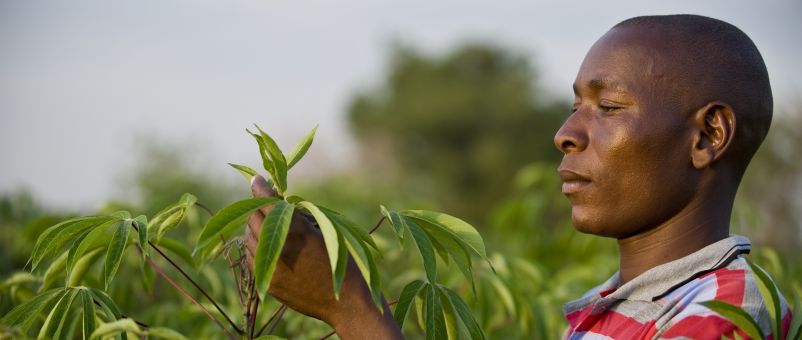- About
- Topics
- Picks
- Audio
- Story
- In-Depth
- Opinion
- News
- Donate
- Signup for our newsletterOur Editors' Best Picks.Send
Read, Debate: Engage.
| April 25, 2016 | |
|---|---|
| topic: | Health and Sanitation |
| tags: | #Ebola, #Port Loko, #Sierra Leone |
| located: | Sierra Leone |
| by: | Elizabeth Wainwright |
In the last 25 years, the country has seen a brutal 11-year civil war that involved child soldiers, abductions and countless war crimes; and more recently the Ebola virus outbreak, which saw over 11,000 deaths in the region, 4,000 of which were in Sierra Leone. In the more distant past, it was a significant spot in the transatlantic slave trade.
The country is tired and incredulous -- this recent history doesn’t seem fair in the land of the ‘Lion Mountains’ (‘Serra Lyoa’; named by the Portuguese explorer who first saw the tall mountains on the Freetown peninsula).
But alongside the disbelief, there is hope. And this is what FairPlanet saw when we were there recently, meeting with faith leaders, government staff, NGOs and others, and talking about approaches to tackling the country’s broken health and wellbeing systems.
Resilience and rebuilding
In Port Loko we visited one of the main Ebola Treatment centres - it is empty now, because the country was recently declared Ebola-free. But it echoes with fear, learning and expectation - the country cannot deal with another knockback. It is working hard to be better prepared and resilient.
At the treatment centre FairPlanet met the Ebola decontamination team - a team of about eight young men who volunteered to work on the frontline of the Ebola response; decontaminating ambulances, uniforms and staff as they collected new Ebola patients. They received minimal pay, but were promised a financial package on completion. They never saw this package, and now feel stuck: they are stigmatised, because of the high-risk work they were involved in, and now they cannot easily find new work, despite their efforts and hope for a new future. We met many others like the decontamination team - young people desperate to find work, create solutions and rewrite their futures. They need to be listened to, and then to co-lead the rebuilding of Sierra Leone.
Listening and creating together
There are people who have lived through much of the past 25 years of Sierra Leone’s history, and who will still be there in 25 years time. They need to be heard and to be encouraged to lead. These voices usually involve faith groups who are a constant presence in most communities. In Sierra Leone, this means churches and mosques, and in the Ebola crisis, both faith groups worked side by side to help their communities. Sierra Leone is lucky to have a relatively peaceful co-existence of faiths, which seems to add to the spirit of collaboration and hope.
“I was frustrated”, Tom said. “I have been here for years, and community-based organisations have been here for years. But now our work was being threatened and even undone by the new groups coming in and working alone. What we need is connection, and collaboration. It would be cheaper for them, and it would respect our country’s policy and plans. You cannot work in isolation.”
Choosing hope
Sierra Leone’s people are demoralised, but they are not defeated. “It is our time”, said Christina, a business owner in Freetown. Christina knows people who have died in the civil war, and in the Ebola outbreak. “We could feel broken, but instead we are choosing to trust in the hope that God calls us to trust in. If we want a different future -- we need to believe in it, and then create it.”
And there is hope. People like Tom, the District Medical Officer, and Christina the business owner, are not afraid to say what they think. They are creating from the strengths that are present (collaboration, voice, initiative, history, understanding and commitment) and asking for support where there are gaps. They are not waiting for external groups to come and ‘save’ them or ‘fix’ them -- they are creating the future they so desperately want and deserve. And through this, they are empowering others to do the same.
It is time for the sun to come out again in Sierra Leone.
By copying the embed code below, you agree to adhere to our republishing guidelines.
